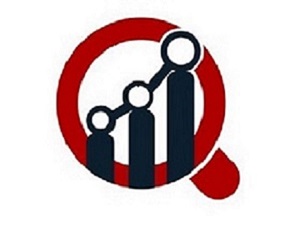
Automotive Insulation Market Overview:
In 2023, the automotive insulation market was estimated to be worth USD 2.50 billion. The Automotive Insulation market is expected to increase at a compound annual growth rate (CAGR) of 4.00% between 2024 and 2032, from USD 2.60 billion in 2024 to USD 3.42 billion by 2032.
The automotive insulation market focuses on materials and solutions used to reduce noise, heat, and vibrations in vehicles. Insulation in automobiles plays a crucial role in enhancing comfort and efficiency by managing temperature and noise levels within the cabin. As vehicles become more advanced, the need for better insulation materials has grown. This market includes products like acoustic barriers, thermal insulation materials, and vibration dampening solutions, all designed to improve the driving experience.
Get a free PDF Sample report:
https://www.marketresearchfuture.com/sample_request/22015
Key companies in the Automotive Insulation market include.
Trends in the Automotive Insulation Market
Several key trends are shaping the automotive insulation market. One major trend is the shift towards electric vehicles (EVs). As EVs become more popular, the demand for specialized insulation materials is increasing. These vehicles require high-performance thermal management systems to ensure the batteries operate efficiently and safely. Additionally, EVs are generally quieter than traditional internal combustion engine vehicles, making soundproofing even more important to block out external noises.
Another significant trend is the push for lightweight materials. Automakers are striving to reduce the weight of vehicles to improve fuel efficiency and reduce emissions. This has led to the development of lightweight insulation materials that do not compromise on performance. Advances in materials science have also introduced eco-friendly insulation options, as sustainability becomes a priority in the automotive industry.
Segment Insights in the Automotive Insulation Market
The automotive insulation market can be divided into several segments based on material types, vehicle types, and applications.
Material Types: The key materials used in automotive insulation include foams, fibers, and other advanced composites. Foams, such as polyurethane and polyethylene, are widely used due to their excellent thermal and acoustic properties. Fibers, including glass wool and ceramic fibers, are favored for their high temperature resistance and sound absorption capabilities. Advanced composites, which combine different materials to enhance overall performance, are also gaining traction.
Vehicle Types: The market segments based on vehicle types include passenger vehicles, light commercial vehicles, and heavy commercial vehicles. Passenger vehicles dominate the market, driven by the high demand for comfort and quiet cabins. Light commercial vehicles also use significant insulation materials to improve driver comfort and cargo protection. Heavy commercial vehicles, like trucks and buses, require robust insulation solutions to manage engine heat and reduce noise levels over long distances.
Applications: Insulation materials are used in various parts of a vehicle, including the engine bay, interior cabin, and underbody. Engine bay insulation focuses on reducing engine noise and managing heat. Interior cabin insulation is crucial for providing a quiet and comfortable environment for passengers. Underbody insulation helps in protecting against road noise and temperature extremes.
Key Market Players & Competitive Insights
Several key players dominate the automotive insulation market, each contributing to advancements and competition. Companies like 3M, BASF SE, Autoneum, and Dow Inc. are at the forefront of developing innovative insulation solutions.
3M is known for its extensive range of acoustic and thermal insulation products. Their focus on research and development has led to the creation of materials that offer superior performance while being lightweight and durable.
BASF SE offers a variety of insulation materials, including foams and fibers, tailored for automotive applications. Their products are designed to meet stringent safety and performance standards, making them a preferred choice for many automakers.
Autoneum specializes in acoustic and thermal management solutions. The company provides comprehensive insulation systems that address various aspects of vehicle performance and comfort. Their expertise in lightweight materials is particularly noteworthy.
Dow Inc. is another major player, known for its advanced material science capabilities. Dow’s insulation solutions are used extensively in the automotive industry to enhance vehicle efficiency and passenger comfort.
These companies are continuously investing in research and development to stay ahead in the competitive market. Collaborations with automakers and advancements in material technology are key strategies they employ to maintain their market positions.
Read full report:
https://www.marketresearchfuture.com/reports/automotive-insulation-market-22015
Industry Developments in the Automotive Insulation Market
The automotive insulation market is witnessing several significant developments. One notable development is the increasing investment in electric and hybrid vehicles. As these vehicles become more common, the need for specialized insulation materials grows. Companies are focusing on creating solutions that can handle the unique thermal and acoustic challenges posed by EVs.
Another development is the integration of smart materials in insulation products. These materials can adapt to changing temperatures and noise levels, providing optimal performance in varying conditions. The use of smart materials is expected to enhance the overall efficiency and comfort of vehicles.
Sustainability is also driving innovation in the market. Many companies are developing eco-friendly insulation materials made from recycled or biodegradable components. This not only reduces the environmental impact of production but also appeals to the growing segment of environmentally conscious consumers.
The adoption of advanced manufacturing technologies is another important development. Techniques like 3D printing and automated production lines are being used to create more precise and efficient insulation materials. These technologies help in reducing production costs and lead times, making it easier for manufacturers to meet the increasing demand.
The automotive insulation market is evolving rapidly, driven by technological advancements, changing consumer preferences, and regulatory requirements. The focus on electric vehicles, lightweight materials, and sustainability is shaping the future of this market. As key players continue to innovate and collaborate, the market is set to grow, offering improved solutions for vehicle comfort and efficiency.
Automotive Insulation Market Segmentation
Automotive Insulation Type Outlook
Automotive Insulation Application Outlook
Automotive Insulation Industry Vertical Outlook
Read more insightful report:
Contact US
Market Research Future
99 Hudson Street,5Th Floor
New York, New York 10013
United States of America
Website: https://www.marketresearchfuture.com
Sales: +1 (855) 661-4441 +44 1720 412 167
Mail : info@marketresearchfuture.com